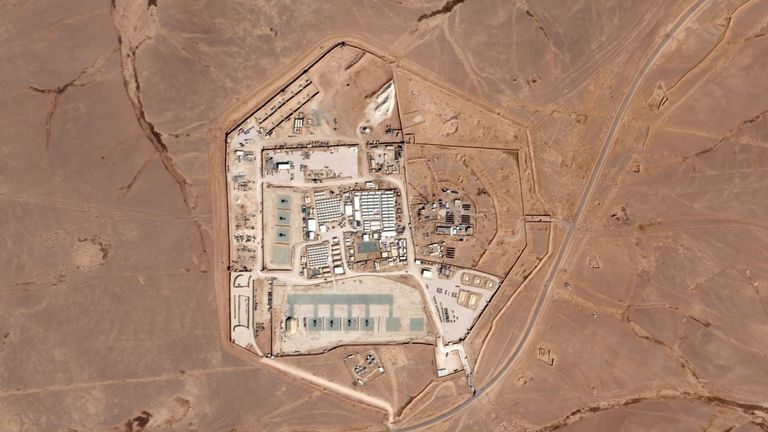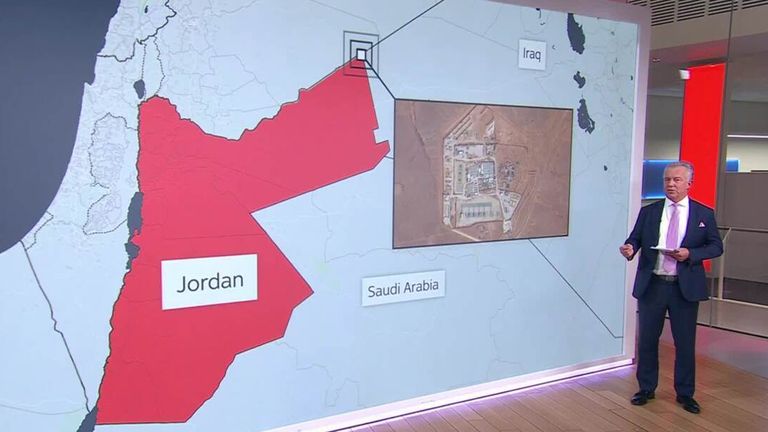Early tonight, President Joe Biden will authorize US military action in the Middle East.
This is likely to be one of the most important decisions he makes during his presidency.
The credibility of US deterrence and the precarious stability of the region are at stake.
The latest in the Middle East: A 'drone mix-up' led to a deadly attack on US forces
Since the game has changed agitation Attacks on Israel Last October, this always troubled part of the world seemed on the brink of a much larger conflict.
The US President hopes that his selection in the coming hours will deter any such escalation. It may do the opposite.
America's enemies have crossed the line: inaction is not an option, but overreaction could inflame tensions in the Middle East and spark a regional war.
For weeks, Iranian-backed militias have been launching attacks on US assets without causing casualties.
That changed when a drone penetrated the defenses at a desert base in Jordan and reached a tent full of sleeping American soldiers.
Three dead and more than 40 wounded in the attack – Blame a militia group with close ties to Iran.
And in the hours that passed, President Biden He will have been given a range of options by his military advisers ranging from the symbolic to the highly punitive.
He can attack the group responsible, but that will be seen by many at home as weak and does not hit the heart of the problem: the group's patrons at home. Iran.
The Pentagon's options also include taking action against Iranian Revolutionary Guard forces in the region outside Iran or attacking Iranian assets within its borders.
Biden will weigh not only geopolitics but domestic political considerations as well.
Read more:
US retaliation may lead to “uncontrollable escalation”
Are we heading towards World War III? Experts make their judgements
His Republican rivals are preparing to launch attacks on Iran itself. He cannot appear weak in an election year.
But another costly foreign war could also hurt his re-election chances. Damned if he does, damned if he doesn't.
Since tensions were ignited by the atrocities committed by Hamas on October 7 and Israel's response to them, there has been fear of a widening conflict in the Middle East.
The president will try to calibrate his response so that it punishes and deters, but does not escalate.
But war is not an exact science.
If US military action is disproportionately destructive, it will require a stronger response from Iran. A cycle of escalation will occur.
The confrontation escalated in the air, on land and at sea.
The US and British air strikes followed attacks by other Iranian proxies, the Houthis, in the Red Sea. Attacks on US assets on the ground in Syria, Iraq and Jordan have intensified.
It is still assumed that no one wants a much larger war, but events at some point may soon gain irreversible momentum, which could push the region into a larger war.
This danger is far from abating, and the moment of no return seems to be getting closer with each passing day.




